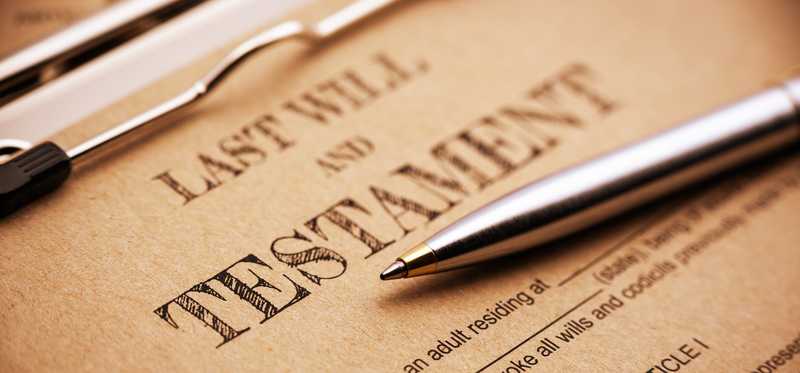11 Financial Moves You Should Make in Your 20s

11 Financial Moves You Should Make in Your 20s
These things should set you on the right path
You may not think of your 20s as the time to buckle down financially. Between starter salaries and student loans, many 20-somethings are just managing to get by. But actually, your 20s are the ideal time to set the stage for a financially secure existence -- both now and in the future. If you’re in your 20s, here are 11 moves you absolutely need to make.
Previous
Next

1. Create a budget
When it comes to getting a handle on your finances, there’s perhaps nothing more critical than creating a budget. Yet shockingly, roughly 60% of the U.S. population opts to wing it instead. Without a budget, however, you’ll have a tough time tracking your finances and identifying key savings opportunities, so if you don’t have one yet, carve out a small chunk of time to map out your living costs.
You don’t need a host of fancy tools to create a budget; all you need to do is open up a spreadsheet on your computer, list your various expenses (including those random ones that pop up once a year), and compare what you’re spending to what you’re earning. If the numbers don’t align, then you’ll need to work on making some changes to ensure that you leave yourself ample room for savings.
Previous
Next

2. Build your emergency savings
Just because you’re on the younger side doesn’t mean you’re immune to financial emergencies. Quite the contrary -- you never know when you might fall ill, get laid off, or find yourself with an unplanned expense on your hands, and without emergency savings, you may have no choice but to rack up costly debt to compensate. A better bet is to have an emergency fund with at least three months’ worth of living expenses, and ideally, more like six months’ worth. Having an adequate level of emergency savings is so critical, in fact, that it should pretty much trump any other financial goal you have.
ALSO READ: Guess Which Americans Have the Lowest Level of Emergency Savings
Previous
Next

3. Map out a retirement plan
During your 20s, retirement might seem like nothing but a far-off concept. But the sooner you begin to put together a retirement plan, the more opportunity you’ll have to save for the sort of lifestyle you want. Now this isn’t to say that you need to decide how you’ll spend your retirement days when you’re 25; but what you should do is read up on some of the major expenses retirees today are facing (like healthcare), learn what to expect out of Social Security, and figure out what sort of savings rate it’ll take to get you to a reasonably comfortable senior existence.
Previous
Next

4. Start funding your nest egg
It’s estimated that nearly half of working adults have yet to begin setting money aside for retirement. Now if you’re in your 20s, you might be sitting there thinking you have plenty of time to build a nest egg, but in reality, the longer you wait, the more it’s going to cost you to amass a decent level of savings. That’s because the sooner you start putting money away, the more opportunity you get to take advantage of compounding, which is really the key to building wealth over time. So start funding your nest egg now, invest that money during your career, and sit back and watch it grow.
If you have access to a 401(k) plan through your employer, you can currently sock away up to $18,500 a year. Otherwise, IRA contributions are capped at $5,500 annually for workers in their 20s. Even if you can’t max out either type of account, save what you can. You’ll be thankful for it later on.
Previous
Next

5. Get out of credit card debt
In case you didn’t hear, U.S. credit card debt reached an all-time high late last year, with the average indebted household winding up on the hook for about $16,000. Ouch. Even if your balance isn’t nearly as high, it pays to work on eliminating that debt as quickly as possible to avoid wasting money on interest charges. Not only can getting out of debt save you money, but it can also improve your credit score, which is crucial if you’re planning to buy a home, rent an apartment, or lease a car in the near future.
Previous
Next

6. Consider purchasing life insurance
If you’re in your 20s, you might assume that it’s too soon to start contemplating your own mortality. But the reality is this: If you have people in your life who depend on you financially, then you absolutely need life insurance. There’s no question about it.
The good news is that the younger you are, the more likely you are to qualify for the lowest rates out there, making life insurance less costly than you may have expected. That said, buying life insurance can be overwhelming, so your best bet is to read up on your options and find a trusted financial advisor or salesperson who’s less likely to upsell you on a coverage level you don’t need.
Previous
Next

7. Get a will
As is the case with life insurance, many 20-somethings don’t think about having a will. But without one, there’s no telling what might come of your assets once you pass. And unfortunately, being young doesn’t render you immune to freak accidents or tragic illnesses. These days, only 22% of adults in their 20s have a will, so if you're not one of them, reach out to a local attorney and look into having one drafted. If you can’t afford a lawyer, or don’t want to pay for one, you can also see about creating a will online.
Previous
Next

8. Obtain adequate health coverage
It’s a frightening statistic that 28% of adults under 65 are underinsured. If you're one of them, then now's the time to look into securing a more appropriate level of coverage, even if it means increasing your premium costs. When it comes to health insurance, it's often the case that the lower your premium, the higher your deductible, and the less comprehensive your coverage. The result? Skimping on health insurance could end up costing you in other ways -- not to mention putting your health at risk.
Previous
Next

9. Get a piece of the stock market action
When it comes to emergency savings, the best place for your cash is none other than the bank. But when it comes to long-term savings, investing in stocks is an efficient means of growing wealth without taking on an undue amount of risk. Sure, the stock market can be volatile, and it’s had its share of ups and downs through the years. But it’s also historically delivered a roughly 9% average annual return, which is about nine times more than what you’ll get from a savings account today.
Best of all, you don’t need to be an expert investor to get into the stock market. If you’re not comfortable investing in specific companies, put some money into exchange-traded funds, or ETFs. These low-cost funds simply seek to track existing indexes, like the S&P 500, and because they offer instant diversification, they’re a less risky prospect than buying up individual companies’ stock.
Previous
Next

10. Save for a home
Though renting has its perks -- namely, having someone else be responsible for maintenance on your home -- there are numerous tax benefits to be reaped by becoming a homeowner. But to go from renter to owner, you’ll need to save up a decent chunk of money for a down payment. Though you might manage to get away with putting down less, you should aim to supply 20% of your home’s purchase price at closing. Otherwise, you’ll get hit with PMI, which will make owning that home more expensive.
Another good reason to save for a home in your 20s? If you take out a 30-year mortgage, you’ll have ample opportunity to shed your housing debt well before retirement, which will put you in a stronger financial position down the line.
ALSO READ: How to Save Enough Money for a Down Payment on a Home
Previous
Next

11. Fight for a higher salary
Your 20s are a time to pay your dues as far as your career goes -- but that doesn’t mean you can’t, or shouldn’t, fight for more money along the way. If you do your research and come to find that your salary falls below the average for your industry, then you’ll need to sit down for a serious negotiation with your boss. Remember, the more money you earn at your current job, the more you’re likely to get at your next job, so boosting your salary won’t just put more money in your pocket now, but also throughout your working years. Also keep in mind that the more you earn during your career, the more you’ll get out of Social Security later on. And while you’re obviously decades away from claiming those benefits, it never hurts to think ahead.
The Motley Fool has a disclosure policy.
Previous
Next
Invest Smarter with The Motley Fool
Join Over Half a Million Premium Members Receiving…
- New Stock Picks Each Month
- Detailed Analysis of Companies
- Model Portfolios
- Live Streaming During Market Hours
- And Much More
READ MORE
HOW THE MOTLEY FOOL CAN HELP YOU
-
Premium Investing Guidance
Market beating stocks from our award-winning service
-
The Daily Upside Newsletter
Investment news and high-quality insights delivered straight to your inbox
-
Get Started Investing
You can do it. Successful investing in just a few steps
-
Win at Retirement
Secrets and strategies for the post-work life you want.
-
Find a Broker
Find the right brokerage account for you.
-
Listen to our Podcasts
Hear our experts take on stocks, the market, and how to invest.
Premium Investing Services
Invest better with The Motley Fool. Get stock recommendations, portfolio guidance, and more from The Motley Fool's premium services.